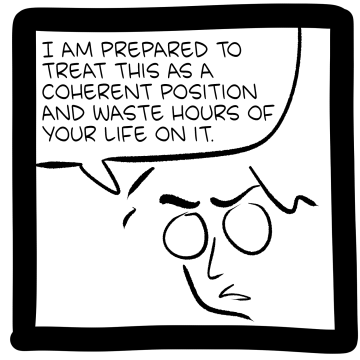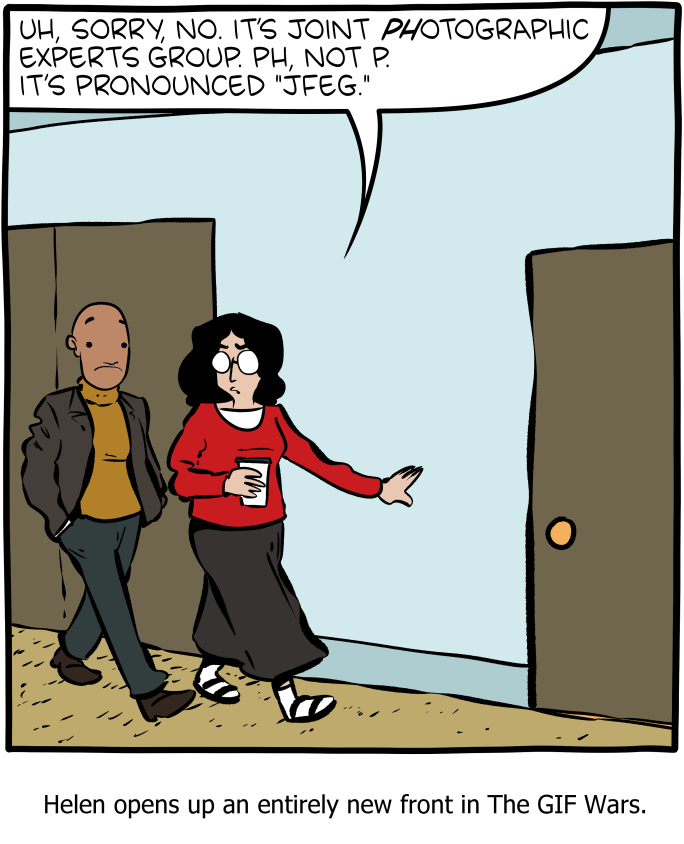this post was submitted on 27 Nov 2023
1853 points (98.0% liked)
Comic Strips
13215 readers
3320 users here now
Comic Strips is a community for those who love comic stories.
The rules are simple:
- The post can be a single image, an image gallery, or a link to a specific comic hosted on another site (the author's website, for instance).
- The comic must be a complete story.
- If it is an external link, it must be to a specific story, not to the root of the site.
- You may post comics from others or your own.
- If you are posting a comic of your own, a maximum of one per week is allowed (I know, your comics are great, but this rule helps avoid spam).
- The comic can be in any language, but if it's not in English, OP must include an English translation in the post's 'body' field (note: you don't need to select a specific language when posting a comic).
- Politeness.
- Adult content is not allowed. This community aims to be fun for people of all ages.
Web of links
- !linuxmemes@lemmy.world: "I use Arch btw"
- !memes@lemmy.world: memes (you don't say!)
founded 2 years ago
MODERATORS
you are viewing a single comment's thread
view the rest of the comments
view the rest of the comments


One of the most common words with a final "e" in that paragraph is "the" which not only has a final "e" sound, but has two different final "e" sounds depending on the context: "the end" uses a /ði/ pronunciation but "the word" uses a /ðə/ pronunciation. English is very stupid.
But, I agree with your assessment. English has rules, or at least patterns. "G" is most often hard, not soft, because "J" is available for the soft version, but there's no alternative for the hard version. English tends to follow patterns, and "gift" has a hard g, and it (and words based on it) are the only ones that start with "gif", so every "gif" word is hard. Because "t" (unlike "e") can't change the sounds before it, the pattern says that "gif" should have a hard "g".
If it were "gir", then there would be more debate. The word "giraffe" has a soft "g" but "girl" has a hard one, so the pattern is more muddy.
Also, people who coin words don't get to decide how they'll be pronounced. They can certainly try, but they'll often lose. There are plenty of words in English borrowed from other languages that not only sound nothing like the original language, but that sound nothing like they'd sound if they were English words. For example, "lingerie". It's a French word, but the English pronunciation sounds nothing like a French word. In fact, if someone just sounded out the word as if it were an English word, they'd probably get much closer to the French pronunciation than the awful "lawn-je-ray" which is the current accepted English pronunciation (though, they'd probably assume a hard "g" sound).
In this case, it's too bad that Steve Wilhite didn't have a background in linguistics or he would have realized that people would see "gif" and assume a hard "g". It was a losing fight from the start because he either didn't understand the assumptions people would have when they saw those letters, or he thought that somehow he could successfully fight the tide all by himself.
Your illustration using the word “the” here is awesome. Particularly the alternative pronunciations. I would also like to add the well known words “be”, “he”, “she” and “me” into the mix.